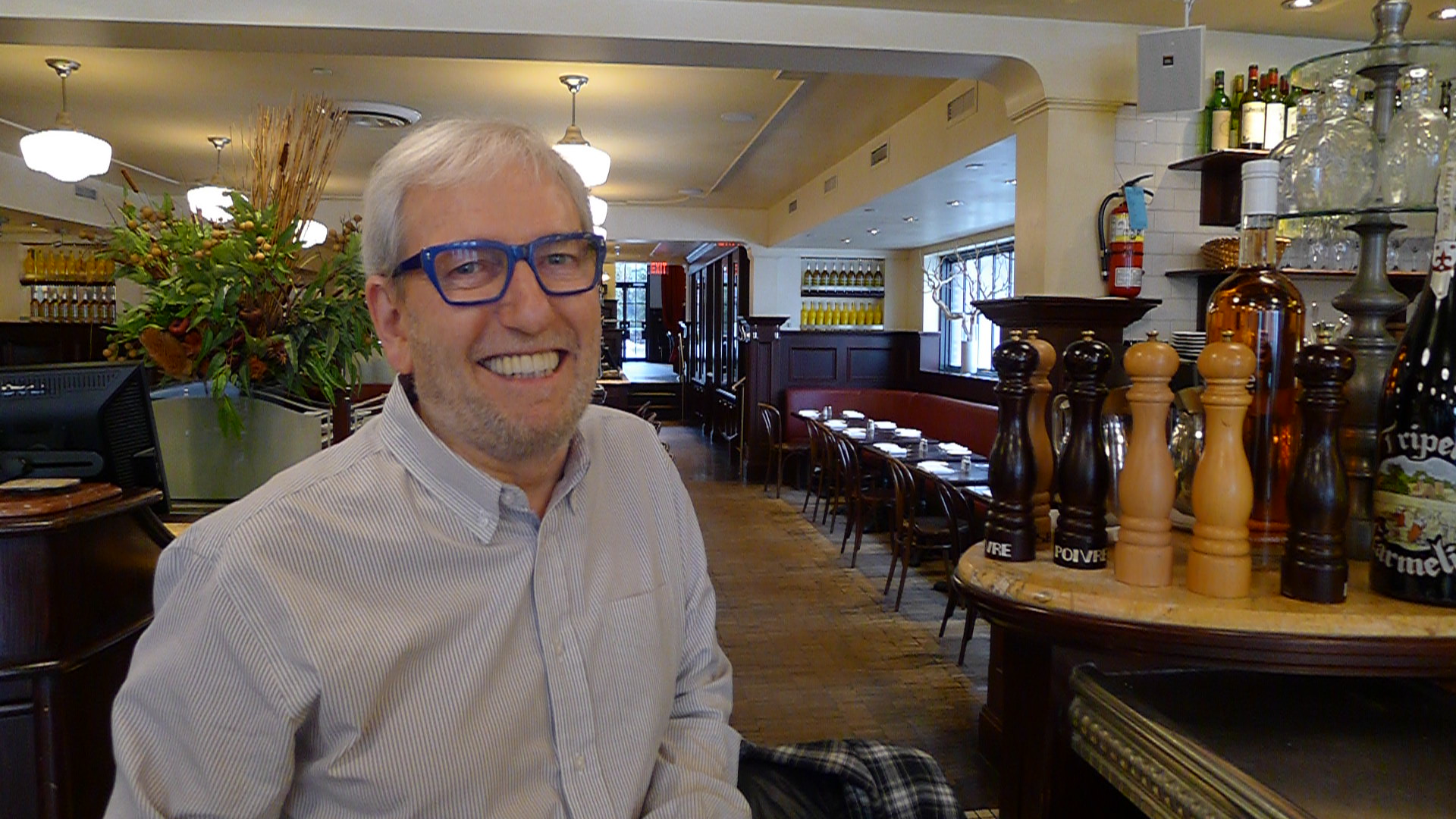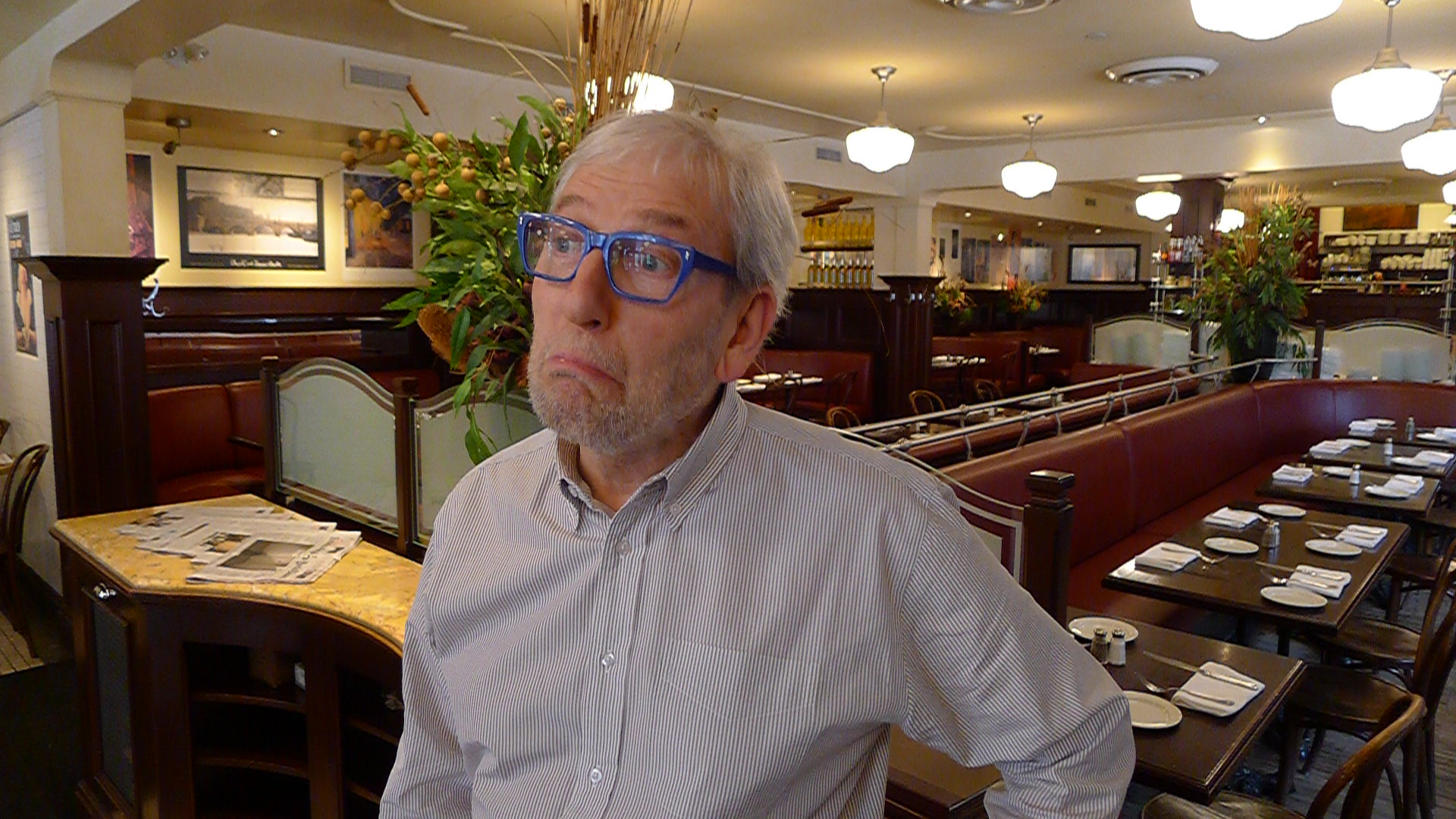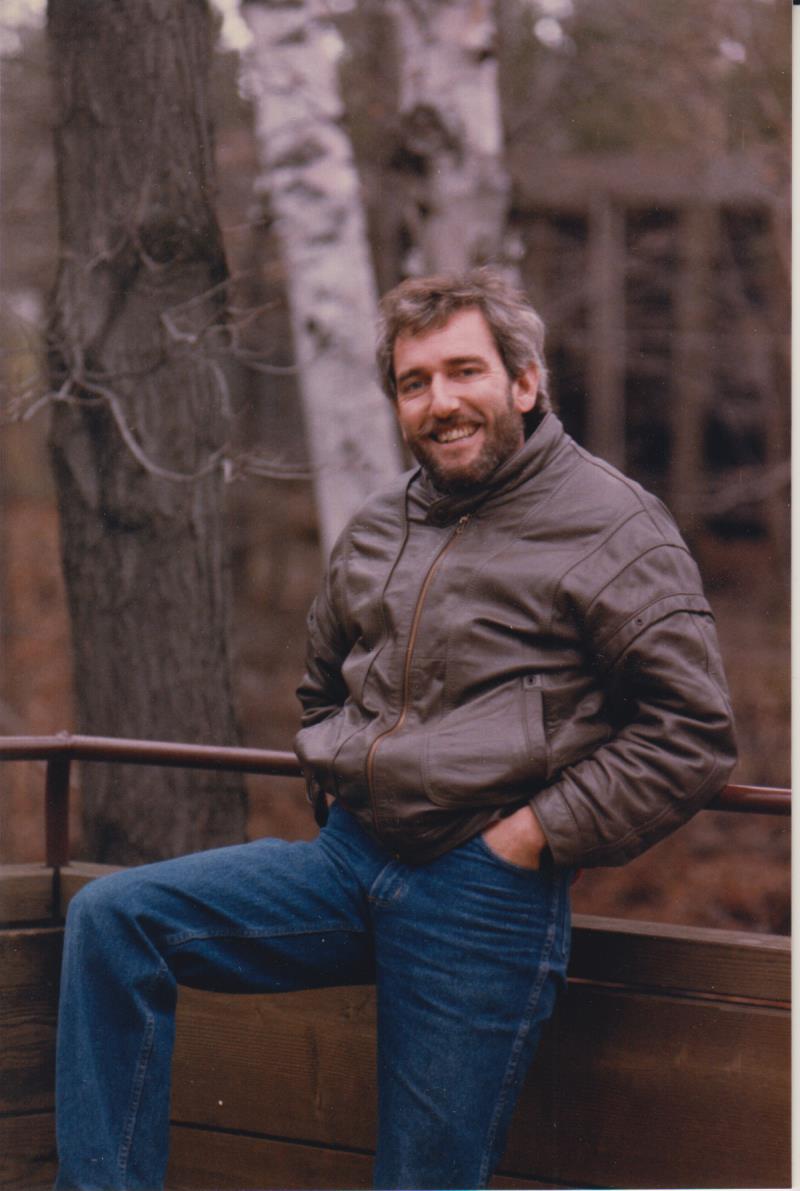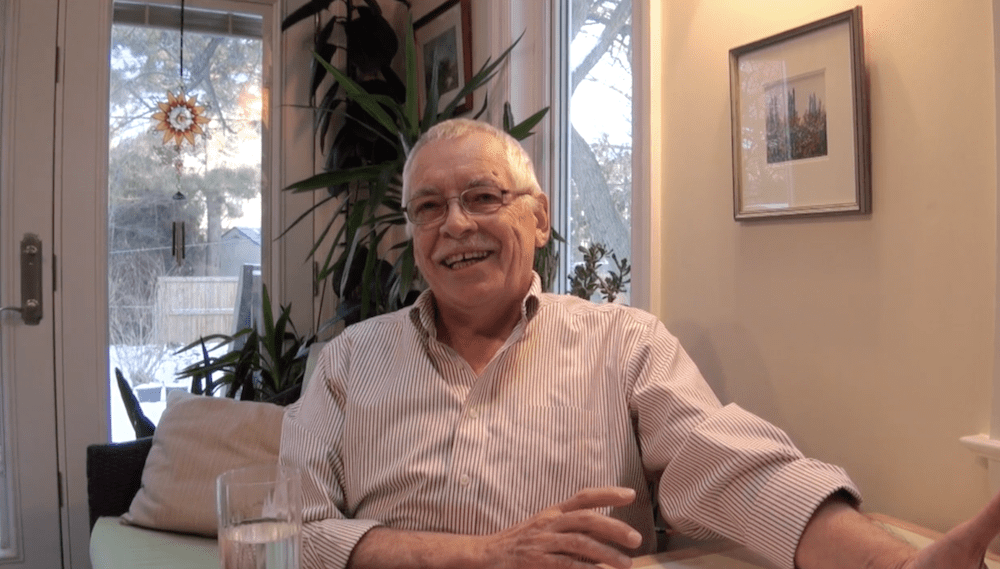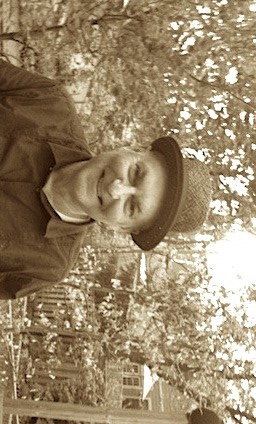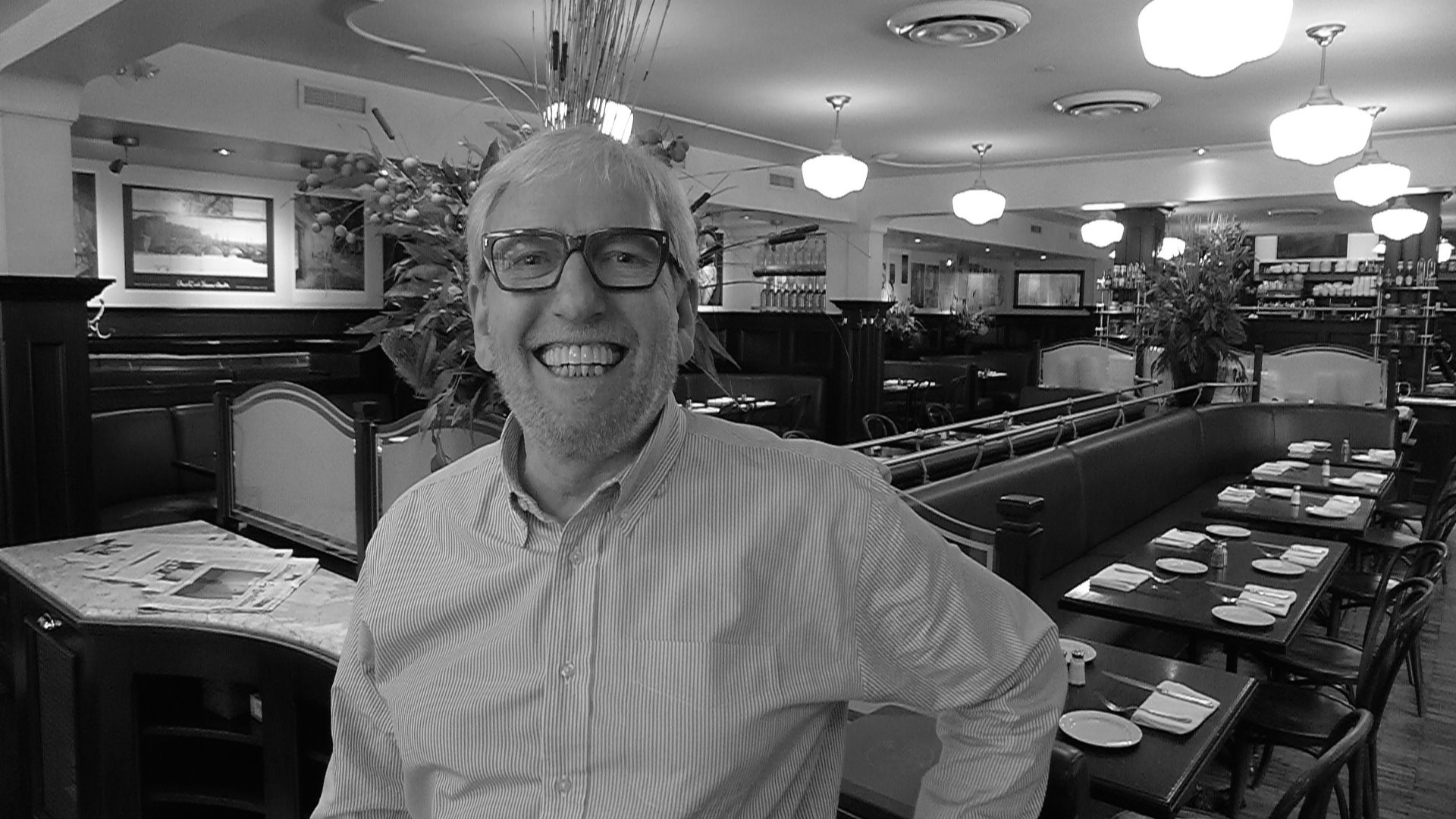
Jean-Jacques Quinsac holding the fort at Le Select Bistro on Wellington, a stalwart bastion of sophisticated French culture in downtown Toronto.
In the eighth of our burgeoning Old Hands series we probe the memories and minds of some of the founding fathers and original influencers of Toronto’s restaurant scene.
Along with his business partner Frederic Geisweiller, Jean-Jacques Quinsac started Le Select Bistro at its former Queen Street address (today a G-Star Raw clothing store) back in 1977.
Little did he know that they were founding an establishment that would be universally recognised as a Toronto institution some 38 years (and with one change of location) later.
Good Food Revolution: Hello Jean-Jacques. Now how long have you been involved in Toronto’s hospitality industry and where did you get your start?
Jean-Jacques Quinsac: We opened Le Sélect in May 1977 with my business associate Frédéric Geisweiller on Queen Street West between Spadina and Beverley Street on the North side (the sunny side). We knew that one day we would have a terrasse in the sun.
GFR: Please remind us of your history in the industry?
JJQ: I started in this profession with Le Sélect. Frédéric and I met on a ski trip in France when we were 15 and discovered that we had the same passion for food, setup and good service. We also discovered that we were leaving a half block away in Paris. We became good friends and set out to explore as many Paris restaurants as we could. This was the late 60s. It engulfed our meagre incomes but we learned a lot.
GFR: And although this is a huge question, what are the most significant changes that you have seen in the dining scene over the decades? Where is Toronto at today and what have we seen by way of changes since you were in the game?
JJQ: So much… when we opened, it had just become permissible to serve wine on Sundays. It seems as if having a good time was akin to sinning. The sourcing of products was an issue. It was difficult to find interesting food products or wine. Unpasteurized and artisanal cheeses were next to impossible to get. In order to buy wine you had to go to what looked like a medical dispensary: an empty storefront with a bare counter and fill out your order on a piece of paper. You couldn’t view the products and had to wait half an hour for your order. French and Italian restaurants back then were ten years behind any restaurant in Europe. We may have been the first restaurant in Toronto to serve Café-au-lait.
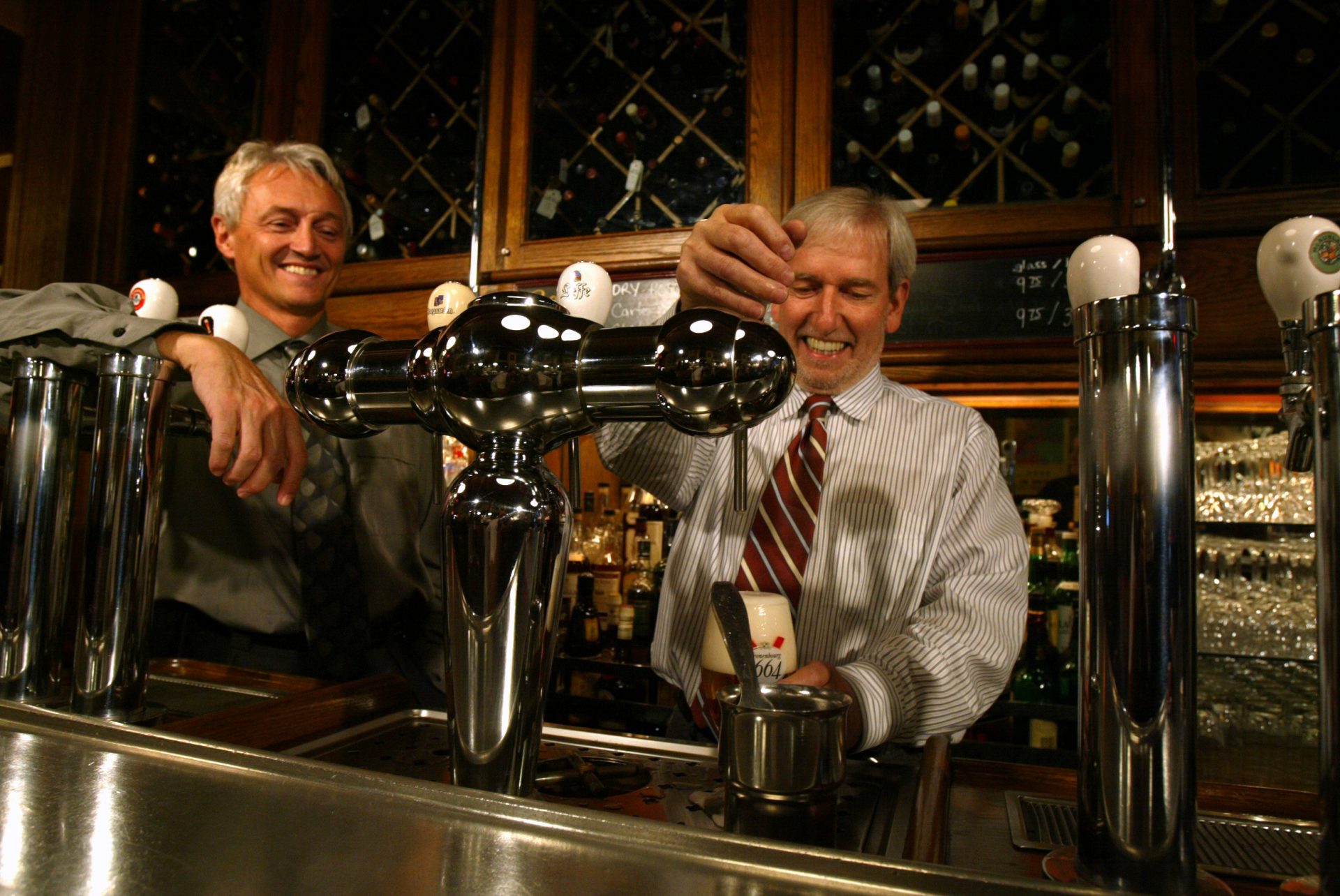
Jean-Jacques with his long-term business partner Frederic Geisweiller at the original Le Select on Queen Street (2000) – Pic courtesy of JJ Quinsac
GFR: How do you feel about Toronto as a restaurant city? Do you feel as if we are world class in this department or do we still have some way to go?
Improvements have been dramatic and the restaurant scene is getting better every week, every month, every year. The new generation of restaurants entrepreneurs is raising the bar. Thanks to social media, restaurant aficionados share comments, recommendations and photos in real time. This creates an upward pressure to improve and to break new grounds. Customers are better educated than before, savvier and more knowledgeable about food and wine.
GFR: What with a number of New York Chefs opening outposts in our fair city, what do you think that this says about the evolution of our dining scene, and perhaps more poignantly, global dining as a whole?
JJQ: This is part of Toronto’s transformation. New international talent is coming but the format is usually that of a chain, often limited to repeating concepts that have been successful elsewhere. I am more excited by homegrown talent.
GFR: Many food messageboards often bemoan the lack of polished service in Toronto? Do you see any truth in this?
JJQ: This is the liberalization that social media has brought. Many consider themselves experts and some believe themselves to be influential critics. You need to take an average of these comments, throw out the furious ones as well as the ones which are too laudatory, everything which is over the top. I would say that on average, service in Toronto is professional, often passionate, and of very high quality.
GFR: What in your mind makes for good service?
JJQ: An attentive –yet discreet– server, present when needed, knowledgeable and able to answer pointed questions. I am not a fan of overachievers who try too hard to please or those who are overly friendly. Familiarity is a no-no, as is being called “you guys”. I can also dispense with a server reciting every single ingredients and technique used in an overly complicated dish. But a good server should have answers to all the questions related to the dining experience.
GFR: Over the years, where have you experienced the best service in Toronto?
JJQ: Hard to tell. One can only be the best by being consistently the best. Establishments categorized by professional critics as being in the upper tier are probably safe bets for excellent service.
GFR: Does the future of the independent restaurant in Toronto look bleak or blissful from you point of view?
JJQ: Unless there is a hub of activity that creates excitement, suburbs are condemned to be the exclusive territory of large chains offering basic food. A restaurant needs to be anchored to a neighbourhood and reflect the values of its milieu. It works in small towns, particularly in the wine regions. But in Toronto itself, I feel that we will see more and more independent restaurants opening up. There are also restaurant groups which operate like independents, such as the Oliver–Bonacini Group which brings a pioneering spirit to all their ventures.
GFR: “No-shows” can be the death of a small establishment. What do you feel can be done (legally) to combat such situations?
JJQ: There will always be no-shows, some explained by emergencies and accidents. In our particular case, and thanks tour TablaZoom reservation system which takes deposits when needed, remind guests by email and SMS and reacts instantly to change by reallocating resources –such as when guests are tardy–, no-shows are for us a tiny-weenie inconvenience. Certainly not the problem that so many restaurateurs deplore. For the last year, for example, no-shows accounted for less than 2% of our total volume.
GFR: So do you feel that a “no reservations” policy is a sensible solution for a smaller restaurant?
JJQ: A no-reservation policy is a huge inconvenience for the customer. So is a badly executed reservation policy where no one picks up the phone, one where the voicemail is always full, one where you have to wait for an answer. Technology is here to assist and a smart system such as ours is the solution. It provides the guest with the expected convenience, and the restaurateur with the required efficiency. Over the long-time a no-reservation policy is not a winner. Once the next new place ceases to be the “it” spot, customers move on if a degree of comfort is not provided.
GFR: How do you feel the recent increase in minimum wage in Ontario impacts the restauranteur?
JJQ: The increase was necessary. A mature industry needs to treat its members well or people won’t take it seriously and won’t stay.
GFR: Getting into the area of tips? Do you feel that serving staff should payout something to the house for breakages and the like? What do you feel is fair or are such expenses just a cost of doing business?
JJQ: No. That is the cost of doing business unless someone is clearly negligent.
GFR: On the subject of Toronto restaurant critics, do you feel that any are worth their salt?
JJQ: Generally they are and the quality of the reviews has improved considerably. Professional reviewers are an indispensable component of a dynamic industry, even if they give most of the space in their columns to the food, talk a little about the service and the atmosphere, and remain mostly silent about the wine and the drinks. Yet these account typically for one third of sales. This is a hugely important part of an operation and its selection, complexity and pricing also defines an establishment.
GFR: And how do you feel about the legitimacy of guides like Zagat and its ilk?
JJQ: User reviews are important and serve a useful purpose provided the citizen reviewers have the courage to step out of an ambivalent anonymity. Anonymous reviews are like anonymous letters: a vehicle to slender a public figure. So guides like Zagat are made of real people sharing their experience. This is very helpful.

Jean-Jacques during the heady days of Le Select’s earlier Queen Street tenure (1985) – Pic courtesy of of Joann Maplesdon
GFR: And then of course we have the democratization of food writing… food bloggers… where do you stand on this particular issue?
JJQ: I respect everyone’s right to say whatever they want, preferably in a well-thought manner, as long as it is not anonymous. The fact that these pieces are not vetted is also a problem. How does the reader know that the photos shown on a blog are actually that of the restaurant and that they have not been mixed up by error or by deceitful intent.
GFR: It appears to me that Toronto goes through very obvious trends in its restaurants (tacos, bacon on and in everything, goodness knows what this week… French Bistro food?) I’d love to hear your thoughts on this topic?
JJQ: Inexperienced chefs are fond of complicated stuff. They confuse complexity for complication. In food, as in wine, the ingredients, the natural flavour and the terroir speak of a loud voice. A good chef is one who makes us hear these sounds. However, breaking the mould is also important or we would stagnate. Experimentation is indispensable, but not all experiments can be successful.
GFR: And what, in your sage wisdom, do you predict for the future?
JJQ: All the signs that we are heading in the right direction are here, as this conversation has highlighted. The future is looking good. It has become a respected profession and it is attracting talent, which we, collectively as an industry, wish to retain.
GFR: Food Television has exploded over the past 10 years… how accurate a portrayal do you feel it paints of our industry?
JJQ: Food television’s goal is to entertain, not to educate. It is a paradox that reality TV presents an unreal side of the restaurant business. This is a labour of love, not a screaming contest. But television has the merit of catering to a large audience and it most probably spurs interest in what we do, even if the nitty-gritty of the day-to-day operation isn’t nearly as glamorous as it looks on TV!
GFR: Canadian wines have come a long way since I arrived in Canada 17 years ago. Do you still feel that there is a resistance to them in some quarters? And why do you think that could be?
JJQ: Canadian wines have indeed come a long way. We are all part of the same hospitality industry and we have all evolved and improved in sync. I have witnessed the evolution of Ontario wines with a lot of interest. I have met most of the vignerons over the years and have been able to admire the transformation.
It took time to see truly world class wines but they are here now, especially Chardonnay, Riesling and Pinot Noir. The only resistance I sense as a restaurateur is the price of these wines. When given the choice on the winelist between Canadian wine and Old world wine at the same price, customers usually go with the Old world. For the moment.
GFR: Thank you so much for your time Jean-Jacques!

Edinburgh-born/Toronto-based Sommelier, consultant, writer, judge, and educator Jamie Drummond is the Director of Programs/Editor of Good Food Revolution… And to this day Le Select is one of his favourite spots for lunch.

